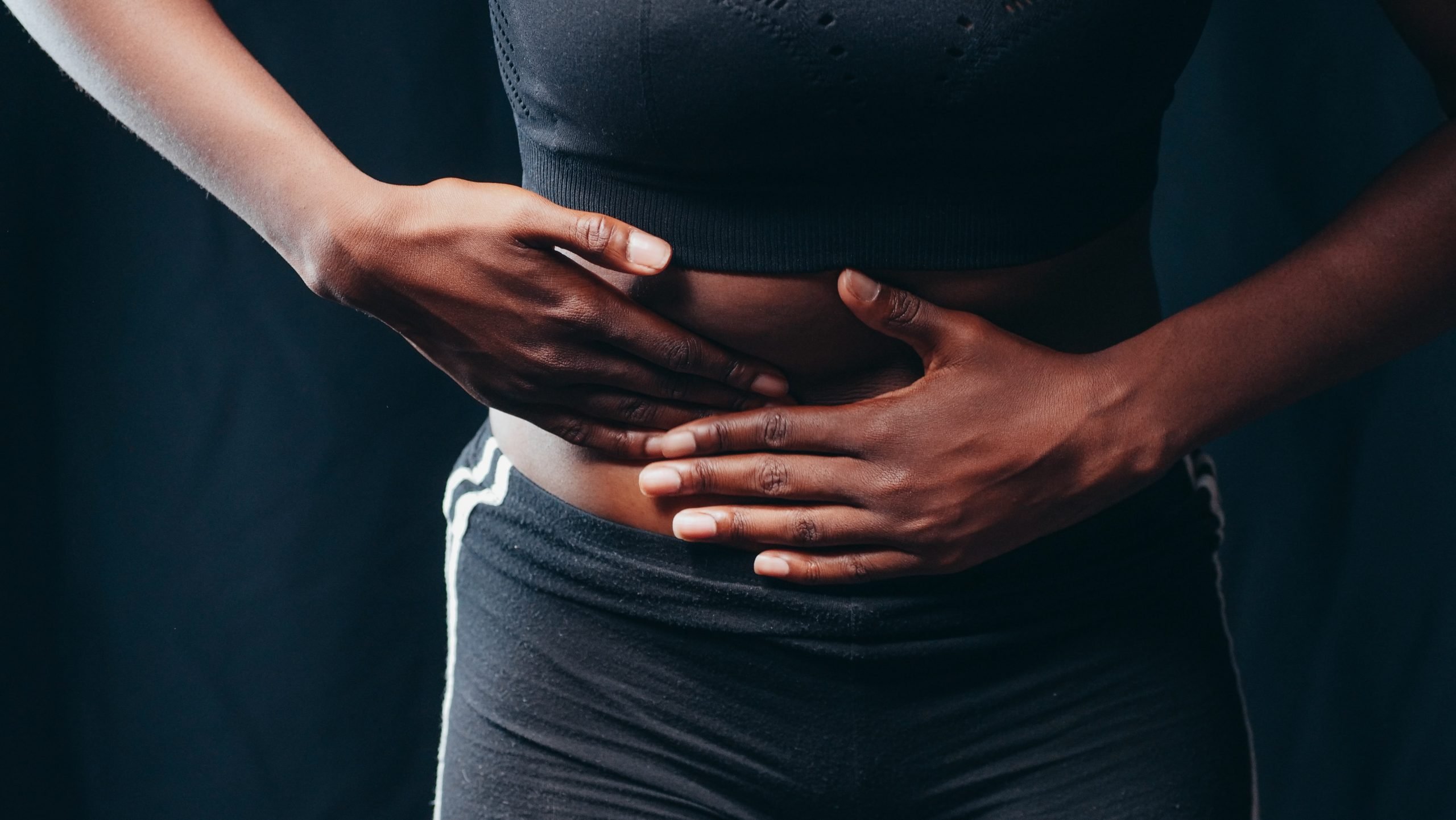Your Guide to Feeling Better Inside and Out
You may be struggling with issues like bloating. You may also face midsection weight gain, brain fog, and fatigue, and you may be desperately seeking answers. These problems often show gut health issues. The bloating or protruding may appear more obvious if you’re also dealing with diastasis recti. In this article, we’ll explore these issues, offering practical tips to help you feel better from the inside out.
Understanding Bloating and Gut Health
Bloating is not just about feeling uncomfortable. It can signal deeper issues with your digestion. Your gut is home to trillions of microbes. They play crucial roles in your health. They help you digest food and support your immune system. So taking care of your gut is vital for your overall well-being.
Bloating can have many causes. These include what you eat, stress, hormones, and health issues. Women often find their bloating gets worse with hormonal cycles. Changes to bloating may occur during your period or pregnancy.
Bloating and Diastasis Recti
Diastasis recti is when the ab muscles separate. It can make abdominal bloating more obvious. Diastasis recti is normal and common during pregnancy, and may continue after birth. But it also affects people who lift heavy weights or have a genetic risk.
When the abdominal muscles separate, they create a gap. It is between the left and right sides of the rectus muscle. This separation weakens the abdominal wall. It causes a protruding belly and less support for the organs in the abdomen.
Diastasis recti compromises how the body regulates pressure in the belly. Normally, your core muscles help regulate abdominal pressure. This aids digestion and prevents bloating. But, when these muscles are weak and separated, they cannot function so well. This leads to more bloating and discomfort after meals.
Also, it can change how digestion works. Weaker abs may slow food movement in the gut. This leads to slower digestion. It causes more fermentation of undigested food. This process can produce extra gas, and add to abdominal bloating.
Managing diastasis recti bloating with diet and lifestyle factors
People with diastasis recti must manage bloating. They do this by improving diet and lifestyle. They must also do exercises to strengthen the deep core muscles. This will help close the gap. It will give better support to the organs. Exercises for diastasis recti can help by improving muscle function and reducing bloating. Support garments may offer relief by supporting the weakened ab muscles from the outside.
Mindful eating practices can help. These include chewing food well. Also, eating smaller meals, and more often. This can also reduce bloating.
By addressing the underlying factors contributing to abdominal bloating, including diastasis recti, you can take proactive steps to improve gut health, alleviate discomfort, and enhance overall well-being. Fixing the causes of belly-bloating can help gut health, reduce discomfort and boost well-being.
Managing Bloating and Promoting Gut Health
Dietary Changes
Eat More Fiber
Foods like fruits, veggies, whole grains, and beans are high in fibre. This keeps your digestion regular and reduces bloating.
Try Probiotic fermented foods
Yoghurt, kefir, sauerkraut, kombucha, and kimchi have helpful bacteria. They can improve your digestion. They can also reduce bloating.
Stay Hydrated
Drinking enough water helps keep things moving in your digestive system and prevents bloating caused by dehydration.
Eat the rainbow!
Eat a wide variety of foods, especially colourful vegetables and fruits, seeds, nuts and legumes.
Include Prebiotics
Prebiotic foods are rich in dietary fibers. They feed helpful gut bacteria. This aids digestion and promotes gut health. Bananas, asparagus, and Jerusalem artichoke are common prebiotic foods. So are garlic, onions, and leeks. Flax seeds and seaweeds like Nori, Kombu, and Dulse, are also prebiotic.
Healthy fats
Nuts, seeds, and fatty fish have healthy fats. These fats are essential. They support heart health and a diverse gut microbiome.
Avoid trigger foods
Avoid ultra-processed foods. Also, steer clear of fizzy drinks and sugary foods. Listen to your body and note how your digestion reacts to certain foods. For example, onions and garlic are good prebiotic foods. But, if they make you bloated, they may not be the best choice.
Mind-Body Strategies for Helping with Bloating
Stress Management
Practising relaxation techniques can reduce stress. These include deep breathing, meditation, and yoga. This can, in turn, ease bloating. Get support and ask for help if you’re struggling to cope.
Get more and better sleep
Keeping good sleep habits helps. It can reduce bloating and aid digestion. Poor sleep can disrupt normal digestion. This can lead to slower or incomplete digestion of food. Lack of sleep or bad sleep also raises stress hormones. For example, cortisol. High cortisol levels can harm digestion. Sleep problems can change gut bacteria. This can cause dysbiosis, an imbalance in gut bacteria.
Stay Active
Regular exercise helps your physical health. It also keeps your digestion in check and your stress levels down. Add strength training and weight lifting as well as exercise that gets your heart rate up.
Check your alignment
Your alignment (or posture) affects your digestion. This means how your body is ‘stacked’ when you stand, sit, and walk. For example, if you habitually suck in your tummy, or stick your chest out in front. If you squeeze or tuck your butt under, or walk with feet pointing out to the side rather than straight ahead. All these postural habits mean that your core and your digestion can’t work well and can cause bloating. Notice how you sit when you eat. Don’t slump or recline as this affects good digestion too. Sit toward the front of your chair, and keep your torso upright. Releasing and stretching the ab muscles is also important. Gentle twists as well as varied core exercise such as in MUTU will help. This helps align your torso and abdomen to aid digestion.
Look after your hormones
Eating well, getting enough sleep, and managing stress can help keep your hormones balanced, which may reduce bloating.
Use Antibiotics wisely
Only take antibiotics when really necessary. Follow your doctor’s instructions carefully. This can help protect your gut from its effects.
Conclusion: Gut health is key to overall health
Paying attention to your gut health is key to overall health. You can beat bloating by changing your diet. You can manage stress and exercise. You can also notice triggers and support your body’s natural balance. If you also have diastasis recti, this will likely feel worse late in the day and after eating. The food you eat and regular exercise help. So do managing stress and sleep. Targeted exercise like MUTU will also help ease symptoms.









